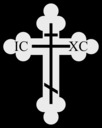Our preparation for Lent has begun, drawing near the moment in our lives when we must answer the call to follow in Christ’s footsteps to Golgotha throughout the Great Lent and bear witness to His victory over death. These upcoming weeks set the tone for a deeper and richer spiritual life. Lent, and indeed our entire lives, serve as our preparation for the Resurrection.
Our aim is to overcome our old selves, rise above the world, and defeat the sin that has turned humanity into the walking dead. The words we hear at the Church, and all the spiritual nourishment we receive, should guide us towards a life that differs from the norms of this world, where people oppress, torment, maim, and kill one another. Could God have created such a life? Certainly not! It is sheer madness and the doors of hell where people refuse to see beyond their self-interest.
Let us take a moment to question how we view others, even within the Church. When someone walks in wearing an expensive dress, we may assume they have something to donate and treat them with extra care and attention. However, when a disheveled, homeless person arrives with an off-putting smell, we may view them with disdain, assuming they are only there to ask for money. This kind of thinking reeks of hypocrisy and falsehood, creating an ugly discordant note to which, unfortunately, we become accustomed all too easily.
We must all live differently, and we should start making changes now. Instead of continually claiming that we are not ready and need more time to think and gather ourselves, we should take action. We often resolve to find time to pray, contemplate, and repent, but only after we have cleared the most urgent matters from our way and are no longer in a rush. However, this is all nonsense! It is a lie and a deception of the world. By being lenient on ourselves, we are squandering precious time.
We should engage in a constant battle with our old selves, our limited reasoning, and our simplistic view of what is happening to us and around us. Today, the Holy Church is teaching us a lesson in life as we read today’s Gospel passage.
Two people entered the temple. One was a zealous follower of the law, doing everything right. But where did that lead him? Filled with pride and self-admiration, he said: “I am better than this sinner who came here for who knows what reason; this place isn't for him. It's for people like me, good, spiritual, decent people…” However, the tax collector felt his guilt before God and uttered words repeated by humanity for thousands of years: “God, have mercy on me, a sinner” (cf. Luke 18:13). Of course, he left the temple justified by God because these words encapsulated his whole life.
Any person coming from the world will keenly be aware of their sin. Some residents of our farm estates have served decades of prison time. Their whole lives have been anything but normal. But how can someone like you and I begin to live our lives obeying the law like the Pharisee, but also repenting as deeply as the Tax Collector? Now there’s a formidable challenge!
How can we learn to do all that, but not consider it our own? That would be genuine art, the art of spiritual life. Today, we do not have a fraction of the Pharisee’s obedience, but are as proud as a dozen of these Pharisees. We are keen to judge and condemn. We claim to know it all. If someone reasons or corrects us, we protest with vehemence and argue our case with all our might. So we have a major task ahead: to prepare ourselves for the life to come, the resurrection from the dead, and do so in the remaining few months of Lent. We must travel the vast distance from living to the letter, to living in the spirit, and our every experience during this time should bring us ever closer to this goal.
No pleasures of the secular world could ever match the joy that descends upon the people who come to church on the Paschal night. No one in the world could give it to us; it simply is not there. Despite all the hustle, senselessness, and chaos of the world, we must learn to see God and rejoice, without recoiling from doing what we must. We must remain living people.
For example, I am concerned (and maybe you are, too) that after taking Communion, the holy gift of life, we forget about it soon after leaving the church, engaging in empty conversations and entertaining idle thoughts. But does it mean that we should lock ourselves inside the Church and stay there? No, it means that we should bring the church to our homes and our hearts. “You are the temple of the Holy Spirit,” says the apostle Paul (cf. 1 Corinthians 6:19). We should live as Orthodox, seeing God in every person, glorifying Him, and thanking Him for all He sends. This should be the foundation upon which to build our future lives, and the upcoming fast is the time to lay it.
During Lent, some will engage in what one might call “Orthodox yoga.” They will puff themselves up like balloons and declare, “I am an ascetic. I am not like this glutton or that other sinner, or some other worthless man.” But deep in their hearts, they will feel a deep void. Today, the Pharisee from the Gospel said something similar. He said it with a sense of self-worth, and that is the saddest part. And the Tax Collector? Who could feel more worthless? An extortionist, a bribe-taker!
We should not judge; we understand that these were people of their time, and they were also imperfect. But this man, a sinner, somehow found his way to the temple, and that was no accident or play of chance. His soul was so contrite that he could not bring himself to raise his eyes. He felt shame; his conscience had come to life. He came to the Holy Temple, and he realized his unworthiness. He venerated a relic, and he felt guilt. He realized how many people he had hurt, how many he had deceived, and how normal it had become for him!..
He was going on with his life, without giving the slightest thought about the pain he was causing others by robbing them of their possessions. He was intent on getting rich, he was living for himself, like everybody else in his circle. All of a sudden, he understood that he was not living, but was tormenting himself and others. He was bringing great suffering upon his soul, because the wealth in his coffers was not giving him any contentment. What could he buy with all that money? Could he buy love, loyalty, friendship? He had lost it all, he had traded it for the petty trinkets of this world. The man prayed - and this prayer is still one of our favourites - “God, have mercy on me, a sinner” (cf. Luke 18:13). He beat his chest and asked God for forgiveness, admitting his sin and repenting it in all sincerity. And the Lord accepted his prayer. It was short, a cry of his anguished soul. He did not read canons, an akathist, or Psalter. He simply realized the state he was in, and knew that he could not continue business as usual. Now was his chance to change, right here in this temple.
Surely his life transformed, as he walked home justified. And that man, the Pharisee who was doing everything right, may never have understood that his prayer had not been accepted. God’s love is not something to be earned. The same universal law is at work everywhere and at all times: the more of God’s love we witness in our lives, the more we get to realize our unworthiness.
The gift of God’s grace makes the soul sore and causes it pain to the extent that our past lives become untenable. That way, the soul dies to the sin that rests within it. But who would want to receive this kind of love? Who wants Golgotha? Who wants to be crucified tomorrow, and let their old self die? Nobody! Everybody wants to be pitied, sympathized with, and understood instead. That's what the human condition is like nowadays.
Tragically, the Lord has told us all we need, but we pretend that we do not understand. Turn your other cheek? What do you mean? You get hit — so hit back even harder; you get offended — so take back yours and retaliate.
In plain terms, the message from the Lord that we are trying so hard to decline is utterly clear: we should live in love, even towards our enemies, and humbly recognize our own faults while maintaining faith in God. This is the essence of our “spiritual arithmetic.” Yet so many of us are still refusing to make sense of the simple equation: me + God + other.
https://obitel-minsk.org/en/to-obey-like-the-pharisee-and-repent-like-the-publican?utm_source=newsletter&utm_medium=email&utm_campaign=lent-pharisee-and-repent







